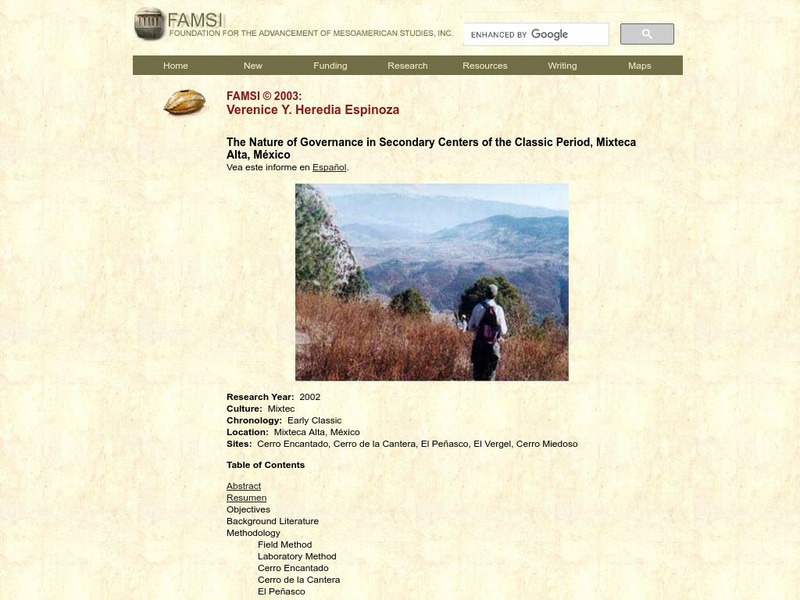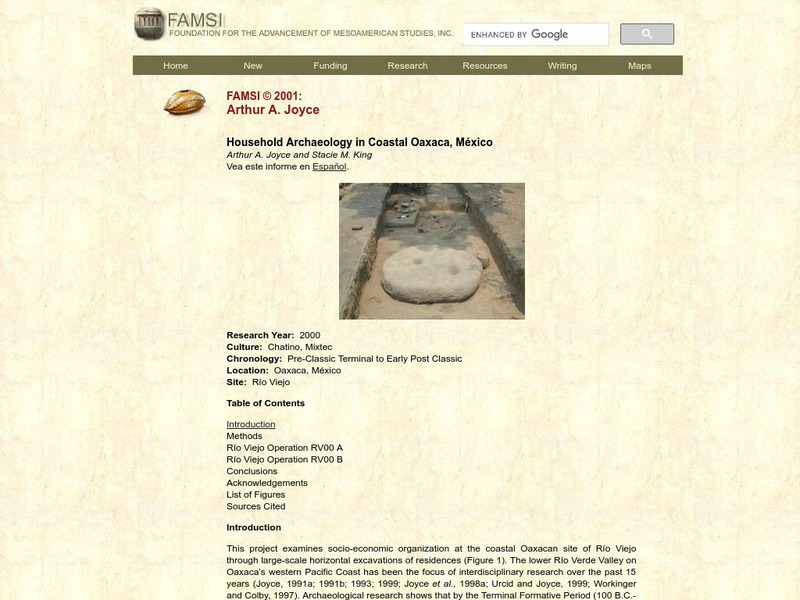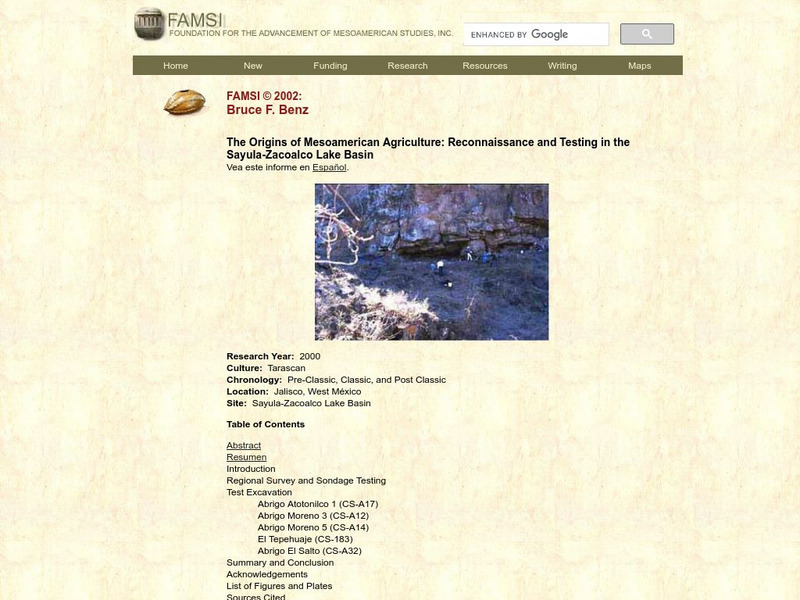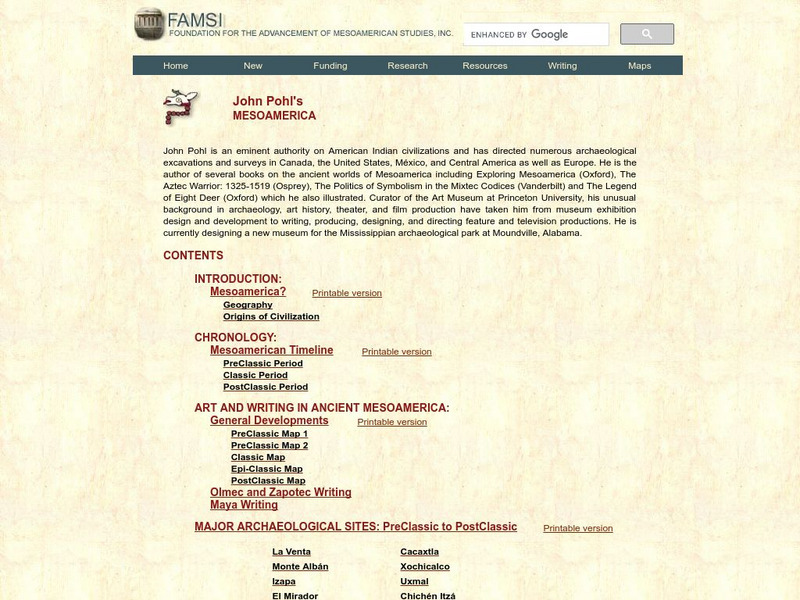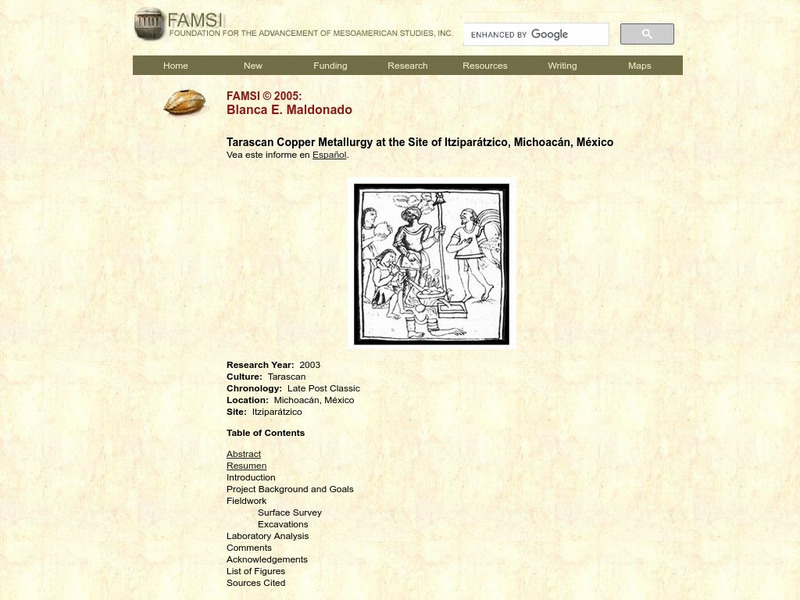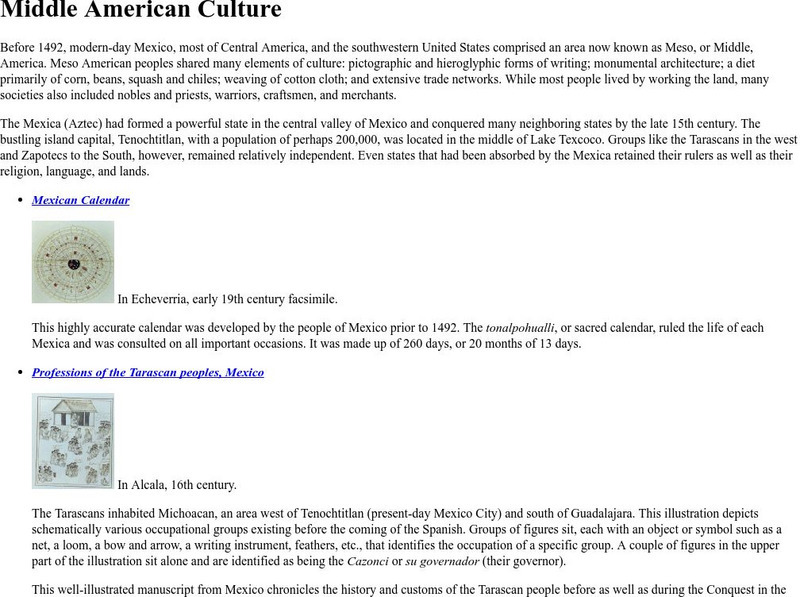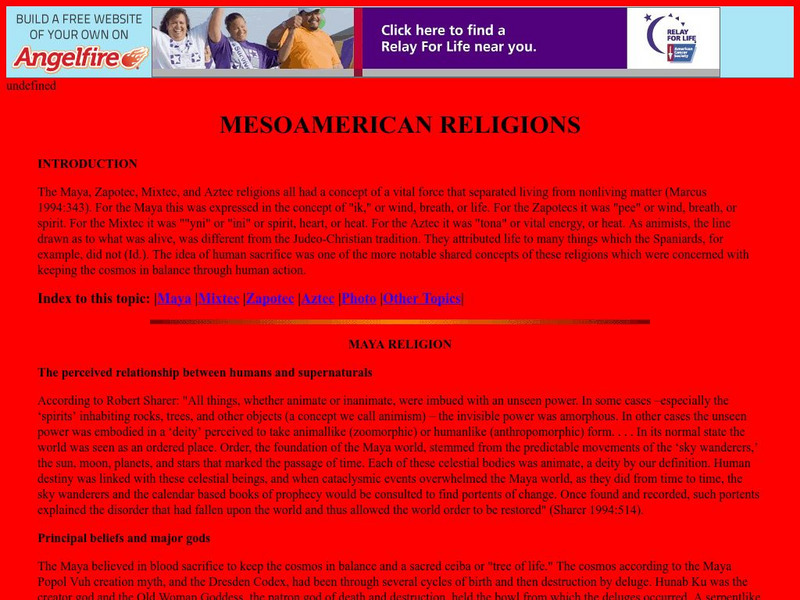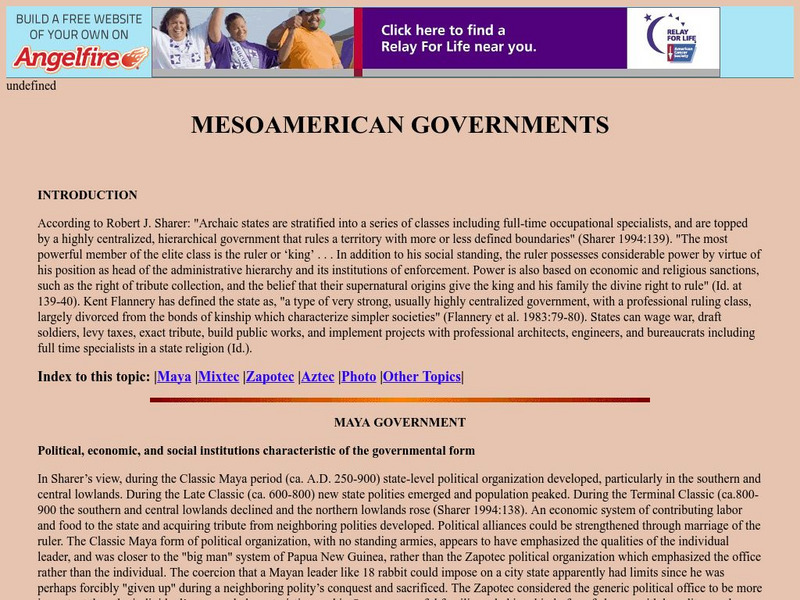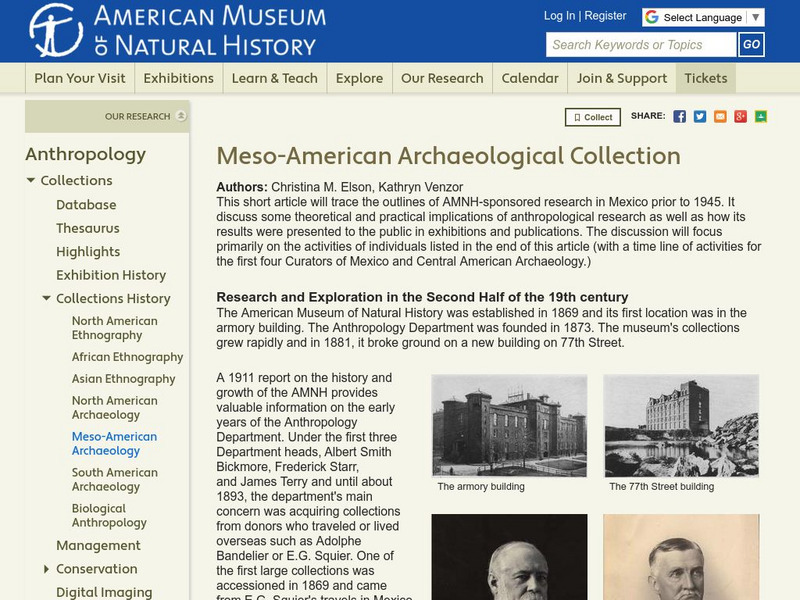Georgia Department of Education
Ga Virtual Learning: World History: Early African and Meso American Societies
World History learning module with comprehensive multi-media reources for student exploration of early African and Meso-American societies.
Foundation for the Advancement of Mesoamerican Studies
Famsi: Investigating Tarascan State at Erongaricuaro, Mexico
Erongaricuaro site was compared to neighboring site of Uricho in the Tarascan State to determine social organization and social hierarchy. Copper is a marker of high status.
Foundation for the Advancement of Mesoamerican Studies
Famsi: Archaeological Investigations in the Homul Region (2003)
Several PDF reports offered at this site offer insights to the sequence of construction by various cultural groups. Very descriptive details of each step of the excavation process and photographs are provided.
Foundation for the Advancement of Mesoamerican Studies
Famsi: Nature of Governance in Secondary (Mixtec) Centers
Pottery, ceramic materials, and architecture were examined to provide insights on political affiliations of Mixtex cities in Mexico.
Foundation for the Advancement of Mesoamerican Studies
Famsi: Household Archaeology in Coastal Oaxaca, Mexico
Offers dimensions of Mixtec household and density of urban village. Household ritual included food processing, tool and textile production, and ceramic production using molds. The importance of Rio Viejo as an urban center is discussed.
Foundation for the Advancement of Mesoamerican Studies
Famsi: El Mapa De Teozacoalco:guide to (Mixtec) Culture (2002)
Using El Mapa de Teozacoalco which was created in 1580 using Mixtec codex paintings, researchers were able to identify and excavate many early Mixtex cities.
Foundation for the Advancement of Mesoamerican Studies
Famsi: Origins of Mesoamerican Agriculture (2000)
Objective of this research was to investigate the cultivation of corn and squash from Archaic period. Human selection transformed teosinte, a weed, into earliest form of maize.
Foundation for the Advancement of Mesoamerican Studies
Famsi: John Pohl's Mesoamerica
Comprehensive overview of Mesoamerica includes an introduction of the term Mesoamerica, the human populations and the region covered, a chronology including the PreClassic, Classic and PostClassic periods, and art and writing in ancient...
The British Museum
British Museum: Explore World Cultures: Maya
Learn about the art of the ancient Maya of central America and the Yucatan penincula in this overview and image gallery with individual artwork descriptions.
C3 Teachers
C3 Teachers: Inquiries: Complex Societies
A learning module on the complexities of the Maya, Aztec, and Inca civilizations. It includes several supporting questions accompanied by formative tasks and source materials, followed by a summative performance task. Topics covered...
Foundation for the Advancement of Mesoamerican Studies
Famsi: Tarascan Copper Metallurgy at Itziparatzico (2003)
Excavation indicates Itziparatzico was an area of sophisticated copper metallurgy. It is not determined if work was for domestic use or trade. One important implication, however, is that copper is not found locally. Because the smelting...
Other
A Pre Columbian (Art) Portfolio
Home page is an extensive search engine to locate artifacts by city or culture.
Khan Academy
Khan Academy: Mesoamerica
Civilization in Mesoamerica flourished and crashed repeatedly, giving rise to a distinctive worldview and some remaining mysteries. This article discusses the rise of early civilizations in this region.
Khan Academy
Khan Academy: Focus on State Building: Maya, Aztec, and Inca Civilizations
The resource from Khan Academy provides practice questions for a high school world history course. This section assesses students' knowledge of the Maya, Aztec, and Inca civilizations.
Khan Academy
Khan Academy: Key Concepts: Maya, Aztec, and Inca Civilizations
The resource from Khan Academy provides practice questions for a high school world history course. This section assesses students' knowledge of the Maya, Aztec, and Inca civilizations.
ibiblio
Ibiblio: Middle American Culture
This site from ibiblio.org includes a picture and short description of the Mexican calendar, a picture and description of the professions of the Tarascan peoples, and a map and description of the ownership rights of land after the...
Foundation for the Advancement of Mesoamerican Studies
Famsi: Sacred Landscapes and Social Memory Ndaxagua Tunnel
PDF report on Ndaxagua Natural Tunnel in Oaxaca, Mexico. Included are photographs and drawings (some calendar) of cave markings thought to be Chocho, Popoloca, and Mixtec cultures.
Other
Mesoamerican Religions
Discusses features of the religious practices of the Maya, Mixtec, Zapotec, and Aztec civilizations.
Other
Mesoamerican Governments
Discusses characteristics of the governments of the Maya, Mixtec, Zapotec, and Aztec civilizations.
American Museum of Natural History
American Museum of Natural History: Meso American Archaeology
This short article will trace the outlines of AMNH-sponsored research in Mexico prior to 1945. It discuss some theoretical and practical implications of anthropological research as well as how its results were presented to the public in...
Oswego City School District
Regents Exam Prep Center: Mesoamerica
Discussion of the farming styles of various Mesoamerican Indians, at the bottom of the page is a discussion of the Incan terrace farming system.





